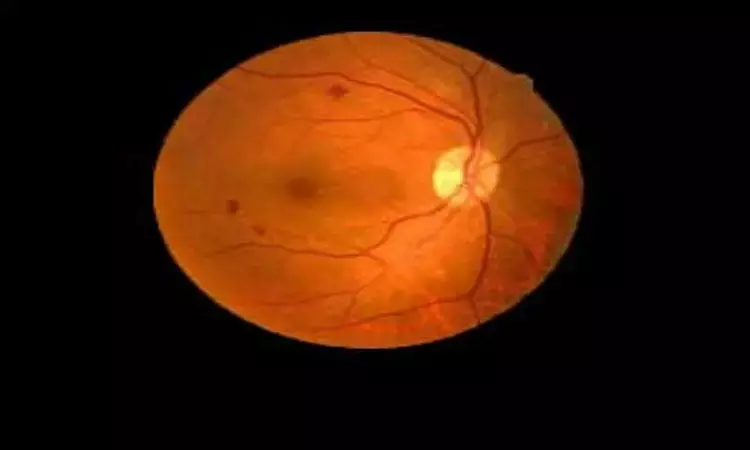- Home
- Medical news & Guidelines
- Anesthesiology
- Cardiology and CTVS
- Critical Care
- Dentistry
- Dermatology
- Diabetes and Endocrinology
- ENT
- Gastroenterology
- Medicine
- Nephrology
- Neurology
- Obstretics-Gynaecology
- Oncology
- Ophthalmology
- Orthopaedics
- Pediatrics-Neonatology
- Psychiatry
- Pulmonology
- Radiology
- Surgery
- Urology
- Laboratory Medicine
- Diet
- Nursing
- Paramedical
- Physiotherapy
- Health news
- Fact Check
- Bone Health Fact Check
- Brain Health Fact Check
- Cancer Related Fact Check
- Child Care Fact Check
- Dental and oral health fact check
- Diabetes and metabolic health fact check
- Diet and Nutrition Fact Check
- Eye and ENT Care Fact Check
- Fitness fact check
- Gut health fact check
- Heart health fact check
- Kidney health fact check
- Medical education fact check
- Men's health fact check
- Respiratory fact check
- Skin and hair care fact check
- Vaccine and Immunization fact check
- Women's health fact check
- AYUSH
- State News
- Andaman and Nicobar Islands
- Andhra Pradesh
- Arunachal Pradesh
- Assam
- Bihar
- Chandigarh
- Chattisgarh
- Dadra and Nagar Haveli
- Daman and Diu
- Delhi
- Goa
- Gujarat
- Haryana
- Himachal Pradesh
- Jammu & Kashmir
- Jharkhand
- Karnataka
- Kerala
- Ladakh
- Lakshadweep
- Madhya Pradesh
- Maharashtra
- Manipur
- Meghalaya
- Mizoram
- Nagaland
- Odisha
- Puducherry
- Punjab
- Rajasthan
- Sikkim
- Tamil Nadu
- Telangana
- Tripura
- Uttar Pradesh
- Uttrakhand
- West Bengal
- Medical Education
- Industry
Bevacizumab substantially cost effective compared with aflibercept monotherapy for diabetic macular edema: JAMA

Intravitreous anti-vascular endothelial growth factor (VEGF) injections are the standard treatment for eyes with vision loss from diabetic macular edema (DME). The most widely used anti-VEGF agents for DME are aflibercept (Regeneron); ranibizumab (Genentech/Roche); and bevacizumab (Genentech/Roche), which is used off label. The DRCR Retina Network Protocol T demonstrated that all 3 medications are highly effective in improving visual acuity for DME. However, in eyes with visual acuity of 20/50 or worse, the aflibercept group had better visual acuity through 2 years than the bevacizumab group, despite many eyes in the bevacizumab group achieving good visual outcomes.
Based on 2022 Centers for Medicare & Medicaid Services reimbursement rates for dose and injection procedures, bevacizumab costs $182.06 per injection ($67.86 for the drug and $114.20 for the procedure), and aflibercept costs $1945.69 per injection ($1831.49 for the drug and $114.20 for the procedure). As a result of the cost difference, some insurance companies may require a patient to initiate DME treatment with bevacizumab and switch to another anti-VEGF agent if the clinical response is not adequate.
Given the respective costs of the treatments and the results of Protocol AC, it is important to evaluate the relative cost-effectiveness of these different management strategies for treating DME.
To evaluate the cost and cost-effectiveness of aflibercept monotherapy vs bevacizumab-first strategies for DME treatment David W. Hutton conducted a study.
The DRCR Retina Network Protocol AC included 312 study eyes of 270 participants at 54 clinical sites in the US. Participants were enrolled between December 2017 and November 2019. This economic evaluation was a preplanned secondary analysis of a US randomized clinical trial of participants aged 18 years or older with center-involved DME and best-corrected visual acuity of 20/50 to 20/320 enrolled from December 15, 2017, through November 25, 2019. Intervention included Aflibercept monotherapy or bevacizumab first, switching to aflibercept in eyes with protocol-defined suboptimal response. Between February and July 2022, the incremental cost-effectiveness ratio (ICER) in cost per quality-adjusted life-year (QALY) over 2 years was assessed. Efficacy and resource utilization data from the randomized clinical trial were used with health utility mapping from the literature and Medicare unit costs.
This study included 228 participants with 1 study eye. The aflibercept monotherapy group included 116 participants, and the bevacizumab-first group included 112, of whom 62.5% were eventually switched to aflibercept. Over 2 years, the cost of aflibercept monotherapy was $26 504 vs $13 929 for the bevacizumab-first group, a difference of $12 575. The aflibercept monotherapy group gained 0.015 QALYs using the better-seeing eye and had an ICER of $837 077 per QALY gained compared with the bevacizumab-first group. Aflibercept could be cost-effective with an ICER of $100 000 per QALY if the price per dose were $305 or less or the price of bevacizumab was $1307 per dose or more.
Variability in individual needs will influence clinician and patient decisions about how to treat specific eyes with center involved DME. Although the bevacizumab-first group costs still averaged approximately $14 000 over 2 years, this approach, as used in this economic evaluation in which 62.5% of this group eventually switched to aflibercept, may confer substantial cost savings on a societal level without sacrificing visual acuity gains over 2 years compared with aflibercept monotherapy for treatment of center-involved DME.
Source: David W. Hutton, Adam R. Glassman, Danni Liu; JAMA Ophthalmol. doi:10.1001/jamaophthalmol.2022.6142
Dr Ishan Kataria has done his MBBS from Medical College Bijapur and MS in Ophthalmology from Dr Vasant Rao Pawar Medical College, Nasik. Post completing MD, he pursuid Anterior Segment Fellowship from Sankara Eye Hospital and worked as a competent phaco and anterior segment consultant surgeon in a trust hospital in Bathinda for 2 years.He is currently pursuing Fellowship in Vitreo-Retina at Dr Sohan Singh Eye hospital Amritsar and is actively involved in various research activities under the guidance of the faculty.
Dr Kamal Kant Kohli-MBBS, DTCD- a chest specialist with more than 30 years of practice and a flair for writing clinical articles, Dr Kamal Kant Kohli joined Medical Dialogues as a Chief Editor of Medical News. Besides writing articles, as an editor, he proofreads and verifies all the medical content published on Medical Dialogues including those coming from journals, studies,medical conferences,guidelines etc. Email: drkohli@medicaldialogues.in. Contact no. 011-43720751


